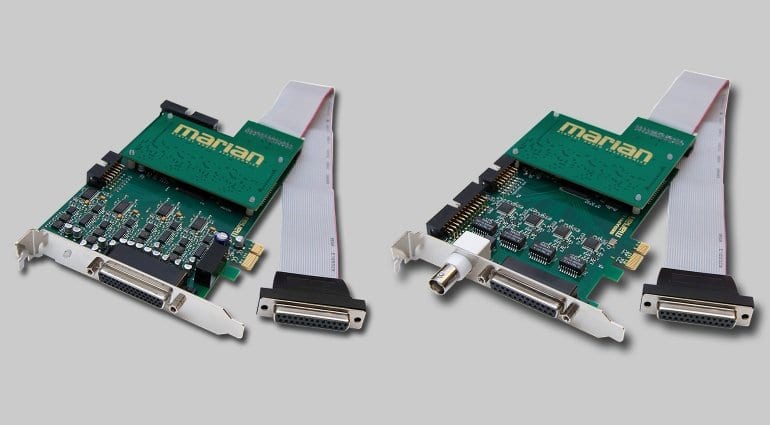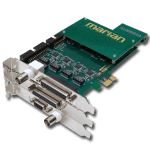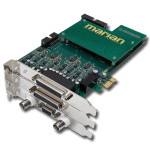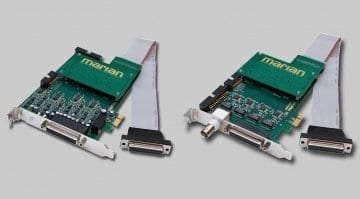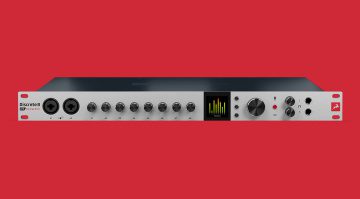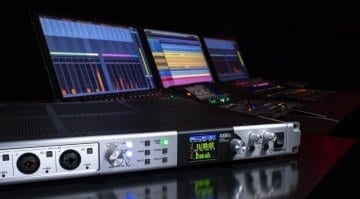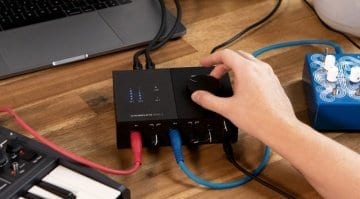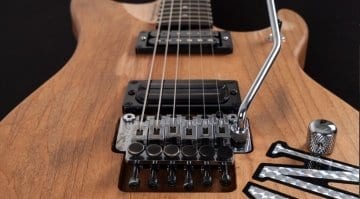Marian launches Seraph AD8 and Seraph D8-C PCIe audio cards. In 2019.
PCIe audio cards with DSP-based mixing. In 2019.
Marian has added two new PCIe audio cards to its portfolio. Yes, you’ve heard it right: They’re still actually developing and releasing new PCIe audio cards in 2019. We’re not quite sure which market they’re targeting, as the pro audio world has all but embraced and adopted external interfaces. But if—for whatever reason—you’re looking for a new PCIe audio card, Marian has got you covered. The Seraph AD8 features analog and digital inputs and outputs, while the Seraph D8-C lives in the digital world.
New PCIe-based audio cards have become rarities now. External means of connection like USB3 and Thunderbolt are now more than fast enough to handle the job, and provide plug-and-play connectivity. Some of the most popular computers commonly used in audio production don’t even have PCIe slots any more. But that hasn’t deterred the German manufacturer Marian from offering two new PCIe audio cards, the Seraph AD8 and Seraph D8-C.
PCIe Cards in 2019
What exactly is the market for these in 2019? Sure, some people like to keep their old machines for reliability and compatibility reasons, which is probably why Marian still offers Windows XP drivers for their cards. And Thomann still lists a total of 19 PCIe audio cards, so they can’t be dead just yet. But I can’t help it, PCIe audio cards do seem a bit out of place in 2019, and I certainly wasn’t expecting any new developments in this segment.
The Marian Seraph AD8 offers eight analog inputs and outputs, as well as four digital AES/EBU connections. The D8-C is the successor to the D8 and comes with eight AES/EBU ports for a total of 32 digital channels. Both cards feature a maximum resolution of 192 kHz / 32 bit with a dynamic range of 140 dB.
- Marian D8-C MWX · Source: Marian
- Marian Seraph AD8 MWX · Source: Marian
DSP mixing environment
For latency-free mixing, both cards include a DSP processor named “The Beast”. It runs a mixing environment with 56 channels, phase inversion, pre/post aux sends, mutes and solos as well as meters and equalizers for each channel. Marian claims that the internal clock is extremely precise. Via the TDM Sync Bus, the cards can be connected directly to up to three other Marian audio cards, which will then exchange clock signals. Both cards are also available in optional “MWX” versions, adding MIDI I/O and Word Clock.
Depending on the version, the Seraph AD8 costs between 809 and 905 Euros. The D8-C can be had for 835 Euros, or 929 Euros for the MWX version.

